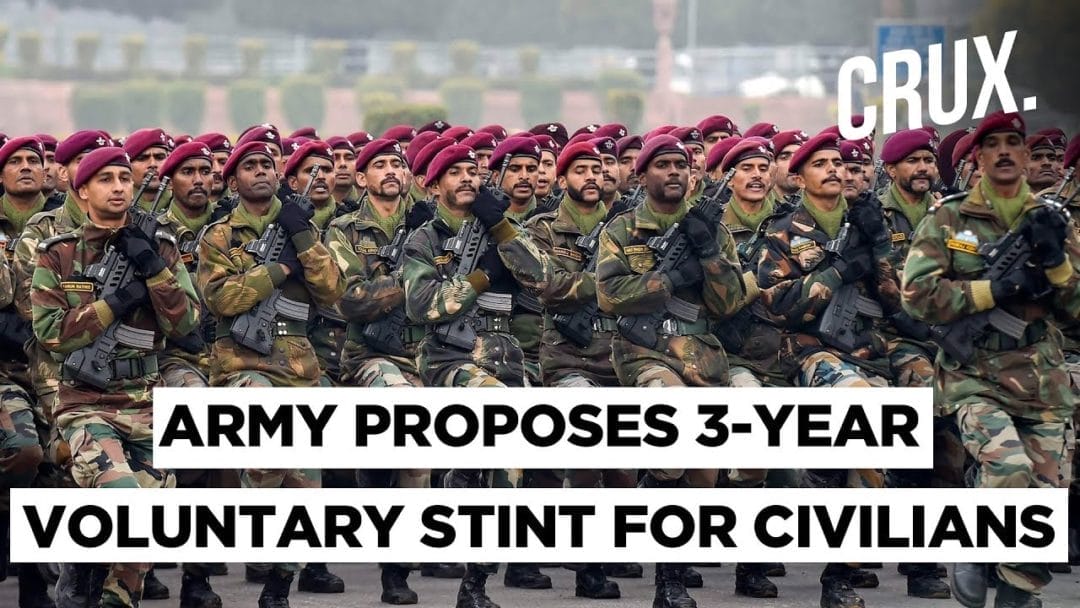Indian army planning to recruit civilians for 3 years’ ‘Tour of Duty’
The Indian Army is considering a proposal to attract young working professionals to join the force for a three-year tenure as officers and in other ranks for a variety of roles.
The proposal is stated to be an attempt to tap the feeling of the youths who do not want to join the Army as a profession but wish to experience military life for a temporary duration. The “game-changing” proposal is being examined by top commanders of the Army.
If approved it will be a voluntary engagement and there will be no dilution in selection criteria. Initially, 100 officers and 1,000 men are being considered for recruitment.
The proposal, which is a part of broad reforms envisaged for the force, is set to be discussed at a conference of top commanders of the Indian Army following which it would reportedly be taken forward.
The scheme will benefit the Army financially, according to reports in media. The cumulative approximate cost of pre-commission training, salary, and other expenses is nearly Rs 5.12 crore and Rs 6.83 crore on an officer if he or she is released after 10 and 14 years respectively. A similar cost for those released after three years, however, would be just Rs 80 lakh to Rs 85 lakh each.
The savings for only 1,000 jawans could be Rs 11,000 crore which could then be utilized for the much-needed modernization of the Indian armed forces, adding that a stint in the Army would also be helpful for young people in getting jobs in the corporate as well as government sector.
After completing one year of training and three years of ToD is expected to help an officer or soldier display visible improvement in self-confidence, teamwork, responsibility, initiative, stress management, innovation, and social skills.
Meanwhile, military and strategic affairs experts have reacted cautiously to the army’s latest plan. They feel that those inducted under the proposed scheme must not be allowed to operate in core areas like front-line bases while adding that adequate care must be taken to ensure that they do not get access to vital security details.



Comments are closed.